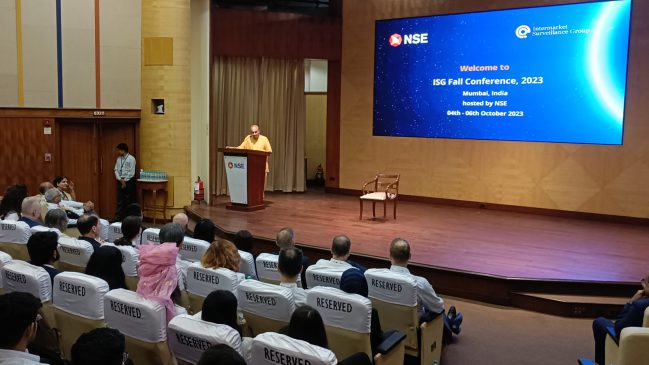A boy plants and nurtures a sapling till it grows into a plant that can take care of itself. A girl rides a bicycle to school because she wants to cut down on pollution. A child takes care of an injured animal. A child stops using plastic in her/his personal life because it is harmful to many sea creatures. A student volunteers as a writer for a blind student during an examination. A student confronts a bully, reports the incident to the authorities and consoles the victim. Another student helps his mother in the kitchen when he finds out his mother is sick.
These are examples of compassionate actions that also demonstrate empathy – understanding the needs and troubles of another and acting on it by helping them in a compassionate manner. It is about being aware of others, listening to them, seeing them fully, being kind, showing considerateness, understanding the pain of others, making some sacrifices, and acting to help others. These actions may be seen as showing compassion for humans, for the planet and all the other animals and plants living here.
Let’s take a short quiz. Answer the following questions with a “Yes” or “No.”
If you answered Yes to all the above questions, then you have strong empathy and may have even taken compassionate action many times.
Empathy is defined as the ability to sense or perceive other people’s emotions, coupled with the ability to imagine what someone else might be thinking or feeling. Empathy enables us to recognize emotions in others, and to see a situation from other people’s perspectives.
Empathy and Sympathy are not the same thing. These two words sound similar and we often confuse their meanings. Sympathy is a feeling of concern for someone, and a sense that they could be happier. Unlike empathy, sympathy doesn’t involve shared perspective or emotions. For instance, we see someone crying on the street. We do not know anything about this person. However, we can feel sympathy because we feel bad that this person is crying or in pain, even though we do not know anything about their situation. Sympathy may develop into empathy, but doesn’t necessarily do so.
According to author Daniel Goleman, who has written books on Emotional Intelligence, empathy is a vital leadership skill and one of the key components of emotional intelligence. There are three steps or stages: cognitive empathy, emotional empathy and compassionate empathy.
Cognitive empathy is the ability to understand what another person might be thinking or feeling. Also called “perspective taking,” it refers to our ability to identify and understand other people’s emotions.
Emotional empathy is the ability to share the feelings of another person, not only to understanding how someone feels, but creating genuine rapport with them.Emotional empathy, also known as affective empathy, refers to the sensations and feelings we get in response to others’ emotions; this can include mirroring what that person is feeling, or just feeling stressed when we detect another’s fear or anxiety, or crying when we see another person crying.
Compassionate empathy involves not only having concern for another person, and sharing their emotional pain, but also taking practical steps to reduce it.
Having empathy does not necessarily mean that we will automatically help someone in need. However, it is an important step that leads to compassionate action.
Listening to others, engaging in acts of service, imagining yourself in another person’s situation are all strategies that can help build empathy.
Research suggests that empathic people tend to be more generous and concerned with others’ welfare, and they also tend to have happier relationships and greater personal well-being. Empathy can also improve leadership ability and facilitate effective communication.
There are many benefits to having and practicing empathy.
Understanding other people’s emotions is an important employability or workplace skill. It helps us to build productive teams, resolve conflicts, have better relationships with colleagues, bosses, clients and customers.
By helping us understand another person’s emotions and moods and their perspective, we can see the world and the problem from their eyes. This helps us to support the other person through a challenging time or situation.
It helps us feel more connected to others and thereby reduce any feelings of loneliness. By increasing our ability to connect with people, we are able to understand when others need help and also more likely to actually help them. Because practice of empathy makes us open to the world, we are also more likely to understand when we ourselves need help and accept help from other people when needed. Humans are social animals and empathy helps us be social in a positive manner.
Furthermore, when we learn to empathize with others, it means we are also boosting our ability to understand and regulate our own emotions. In times of stress and anxiety, we are able to better manage any anxiety we experience without feeling overwhelmed.
Empathy has deep roots in our brains and evolutionary history. Very basic forms of empathy have been observed by scientists in apes, monkeys and dogs.
Scientists have hypothesized that some aspects of empathy can be traced to mirror neurons; cells in the brain that fire when we observe someone else perform an action in much the same way that they would fire if we performed that action ourselves. We have had this experience while seeing others cry, seeing others in pain or even while watching engrossing movies where the character is going through some pain (vicarious experience).
There seems to be a genetic basis to empathy; however, research studies have clearly shown that people can enhance (or restrict) their natural empathic abilities.
We need to ask ourselves constantly: What am I doing with my ability to empathize? Am I enhancing it or restricting it?






